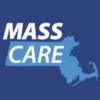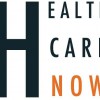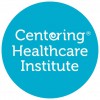We use a participatory approach to map over 20,000 kilometers of footpaths and 100,000 structures. These data have been combined with high resolution data on land cover, a digital elevation model, rainfall data, and geolocated data from the IHOPE cohort (see above). These data are used to determine travel times to health care, measure geographic equity, and study geospatial determinants of disease.
Accessibility modeling results are available on an e-health platform developed with R Shiny. The Ifanadiana Health Outcomes and Prosperity longitudinal Evaluation (IHOPE) cohort was established in 2014 at the start of Pivot's work in Ifanadiana District. Modeled after Demographic and Health Surveys, it tracks standard international health, demographic, and socioeconomic indicators.
Accessibility modeling results are available on an e-health platform developed with R Shiny. The Ifanadiana Health Outcomes and Prosperity longitudinal Evaluation (IHOPE) cohort was established in 2014 at the start of Pivot's work in Ifanadiana District. Modeled after Demographic and Health Surveys, it tracks standard international health, demographic, and socioeconomic indicators.
Services
People die needlessly because of the gap between knowledge and action, which creates the barriers to delivering care despite the availability of affordable solutions. By improving design, delivery, and data in a single model health district, we are helping those who suffer from inadequate healthcare lead themselves and their families toward healthier lives.
We work at the invitation of the government of Madagascar and have grown from our founding partnerships with the Ministry of Public Health, Partners In Health, and Centre ValBio. We believe in the importance of amplifying the work of our peer organizations, building coalitions around key issues, and growing a broad and diverse community of support in all its forms.
We partner with government and local communities to strengthen the public health system in Ifanadiana District, creating a model of universal health coverage for the country and beyond. Madagascar has exceptionally high rates of poverty and one of the least-resourced healthcare systems in the world.
Model systems have the potential to marshal the full power of science to tackle the interconnected problems that prevent people from getting the care they need. Complex problems can be overwhelming, too often causing inaction or complacency in the field of global health. They are why people suffer needlessly when solutions exist, and why we narrow our focus to isolated, "tractable" problems.
Reviews

Be the first to review Pivot Works.
Write a Review


